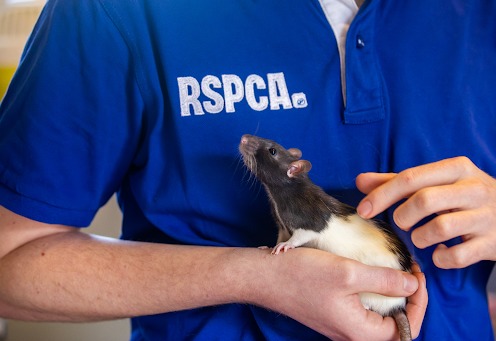NEW FIGURES from the RSPCA have shown that reports of animal cruelty on social media have risen by over a quarter so far this year.
From January to May this year, the charity saw 133 reports compared to 104 from the same time period last year.
The charity has also received 2,600 reports of cruelty on social media over the last six years and there was an 8% increase in cruelty reports from 2023 to 2024.
On average, 25 reports of animal cruelty were made to the charity every month last year.
Facebook had the most cruelty of any platform with 1,526 reports followed by Instagram, at 499, and TikTok at 221.
The RSPCA’s Kindness Index survey 2025 found that nearly one in three people had witnessed cruelty online (30%) which although is a slight decrease from the previous year it still highlights that cruelty is ever-present on social media.
It reports that an increasing number of young people are seeing this content with 46% of 18-24 year olds in 2025 saying they had witnessed it.
The charity says there were also worrying annual increases in people viewing cruelty content on Facebook, Instagram and TikTok, with 42% of those observing cruelty seeing it on Facebook alone.
The charity also revealed it saw a 33% annual increase in cruelty reports to the charity during the summer period.
Last summer, the charity took 374 reports of cruelty against animals every single day or one call EVERY two minutes when the cruelty line is open.
As such, the RSPCA has launched its summer cruelty campaign to appeal to the public to help them tackle animal cruelty.
David Bowles, Head of Public Affairs at the RSPCA, said: “It’s incredibly worrying to see that reports made to us about cruelty on social media have been increasing and this highlights the progress that social media companies need to make to become compliant with the new law which makes it an offence to post content showing animal cruelty online.
“We’re very concerned that the use of social media has changed the landscape of abuse with videos of animal cruelty being shared for likes and kudos with this sort of content normalising – and even making light of – animal cruelty.
“What’s even more worrying is the level of cruelty that can be seen in these videos, particularly as so many young people are being exposed to graphic footage of animals being beaten or killed which they otherwise would never have seen.”
More information about the RSPCA’s summer campaign is available via: rspca.org.uk/summercruelty
























